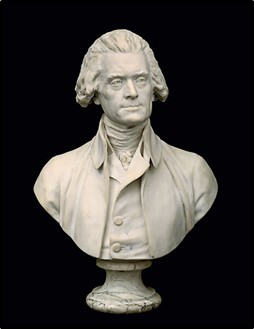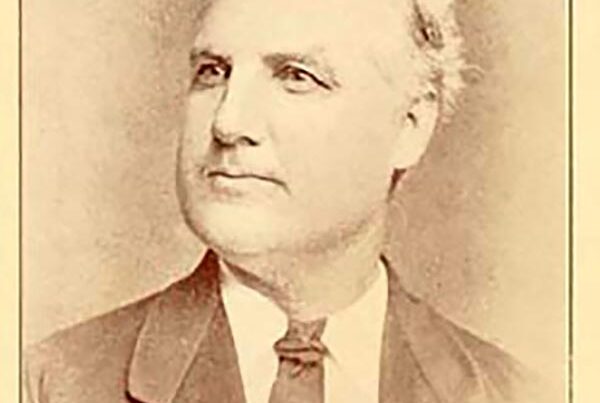On July 19, 1823, Adamantios Koraïs—preeminent Greek scholar (1748–1833), philosopher of education, polyglot (Ancient Greek, Latin, Hebrew, Dutch, French, and English), and revolutionist—writes to Thomas Jefferson for “help from men truly free.” Circumstances in Greece are parlous. Greeks, under Turkic yoke since the middle of the fifteenth century, are in the midst of a revolution, begun in 1821, and Greeks are confounded. It is one thing to begin a revolution, it is another to sustain it and to come up victorious. And then, there is the prickly problem of just what to do when the revolution is won. That requires a clean idea of why in the first place the revolution was begun.
Koraïs is flummoxed. Greeks cannot return to Turkic rule, yet Greece’s European friends are unwilling to help, as they seem to have little respect for the freedom of Greeks. Since the ocean that separates Koraïs and Jefferson prohibits any interaction tête-à-tête, Koraïs takes up his pen and crafts to Jefferson a long letter. He seeks Jefferson’s advice. Is it possible for Jefferson to send to Greece two or three Americans who could advise Koraïs’ Greeks in their “affaires commerciales” (perhaps a metaphor for nation-building)? Should Jefferson find that request impossible, could Jefferson or another publish some thoughts on the blessings of free government in an American paper and then send that paper to Koraïs so he can translate it into Greek to inspire his fellow revolutionists. “Such a letter must produce a salutary effect on the minds of my fellow citizens, of whom a considerable part know and revere your name.” Such is Jefferson’s global reputation at the time as it relates to liberty and government.
Jefferson pens a long letter to Koraïs—one of his most singular letters on the structure of good government.
Though he cautions that one of the fundamental principles of American governing is not to involve itself in the broils of Europe, Jefferson cannot but help assist in “this holy cause.” Americans, unlike persons of other nations, enjoy the “blessings of liberty and order”—the two, since the days of Plato (d. 347 BCE), were seen as incompatible concepts—and wish other nations also to enjoy them.
There are two nodi, two difficulties, to note. First, the American federal government cannot be a model, for it is too large and its largeness prohibits lessons to be drawn from it that are applicable to Greece, a relatively small nation. Thus, “the particular constitutions of our several states [24 at the time] therefore, and not that of our federal government, will furnish the basis best adapted to your situation.” Second, each of the 24 states has a constitution proportioned to its needs. Therefore, there is no one-size-fits-all model of a constitution. “you will find much good in all of them, and no one which would be approved in all it’s parts. such indeed are the different circumstances, prejudices, and habits of different nations that the constitution of no one would be reconcilable to any other, in every point.”
Here we are saddled prima facie with an insuperable difficulty. If the circumstances, prejudices, and habits of each people/nation are unique, what is the point of seeking Jefferson’s advice in framing a constitution/government?
That all constitutions must be crafted to meet the circumstances of their people makes constitution-crafting relativistic. Does that make constitution-crafting arbitrary, discretionary?
There are noxious and innoxious forms of relativism: subjective and objective relativism. Relativism is subjective apropos of a constitution when there are no discernible criteria by which a constitution can be said to meet the needs of its people. Each person in study of the people of a nation and their needs will come up with different, and radically so, criteria. Relativism is objective when there are discernible criteria by which a constitution can be said to meet the needs of its people. Each person in study of the people of a nation and their needs will come up with the same criteria, though a change in the people or in the circumstances, even slightly, results in a change of criteria. Jefferson was an objective relativist.
There are, for Jefferson, some principles that are axiomata of any good government, because “the equal rights of man, and the happiness of every individual are now acknoleged to be the only legitimate objects of government.” So, any good constitution must aim at the happiness and rights of all citizens, each the equal under the laws of all others. Those aims entail freedom of religion, freedom of person (habeas corpus), trial by jury, legislation and taxation by elected (and recallable) representatives, and freedom of the press.
Yet the model of Ancient Athens is passé, for it in theory allows all to have equal access to modes of democratic government and nations today are in the main too large for that to be successful. “modern times have the signal advantage too of having discovered the only device by which these rights can be secured, to wit, government by the people acting, not in person, but by representatives, chosen by themselves, that is to say, by every man of ripe years and sane mind, who either contributes by his purse or person, to the support of his country.”
Jefferson then proffers some thoughts on the three branches of American governments: both states’ governments and the federal government.
The executive of the federal government and governors of the states are elected by the people for terms, not for life, to prevent the creation of tyrants. He advises strongly a single executive, for an oligarchy will promote stultifying factionalism. “a plurality in the supreme Executive will for ever split into discordant factions, distract the nation, annihilate it’s energies, and force the nation to rally under a single head, generally an Usurper.” The executive should also be free to choose his cabinet and advisors.
The legislative branch comprises a Senate and House of Representatives. Different states have different methods of electing those representatives. Jefferson here astonishingly suggests to Koraïs a wrinkle “to avoid all temptation to superior pretensions of the one over the other house, & the possibility of either erecting itself into a privileged order.” That wrinkle is to have elected legislators form only one body to be by lot separated into senators and representatives, and then “to shuffle their names together and redistribute them by lot, once a week or fortnight.” Thus, a senator of Kentucky might find himself to be a senator of Kentucky for 22 weeks of the year and a representative of Kentucky for 30 weeks! That strange sentiment I have not found in any other of Jefferson’s writings.
The judiciaries, says Jefferson, are differently elected in different states: some for life, others for terms. Elected officials in some states, where judges are elected for life, are removed by a two-thirds majority in each house, which Jefferson finds abominable. Why? “the action of personal and party passions, and the sympathies of the human heart, will for ever find means of influencing one third of either the one or the other house, and thus secure their impunity, and establish them, in fact, for life.” In short, any judge of questionable behavior will be able to influence or bribe at least one third of the members of each of the legislative branches. Thus, any judge with a life-term will be a judge for life, regardless of his behavior.
Jefferson goes on to describe his ideas on “three grades” of public education, needed for sound government of and for the people: (1) primary schools for both sexes for instruction in reading, writing, and common arithmetic; (2) intermediate schools, “in which an education is given, proper for Artificers, and the middle vocations of life; in grammar, for example, general history, logarithmic arithmetic, plane trigonometry, mensuration, the use of the globes, navigation, the mechanical principles, the elements of Natural philosophy, and, as a preparation for the University, the Greek and Latin languages”; and (3) a university where the useful sciences are to be taught “in their highest degree.”
Whatever constitution the Greeks might choose, Jefferson adds, there must be cleanly articulated a mode of amendment “when experience or change of circumstances shall have manifested that any part of it is unadapted to the good of the nation [or state].”
The letter by Jefferson to Koraïs is vintage Jefferson. Saddled by infirmity and age—he is 80 at the time and 80 in his day was very old—he still takes the time to help Koraïs in the latter’s fight for Greece’s liberty from the Turks. It is difficult to find another person of high genius so wedded to actualizing the possibility of all persons everywhere living as they wish to live, not how a particular government tells them how they ought to live.







Dissemination of Jefferson’s thoughts through his letters, a few documents and practical example from the early years of the United States answer for much of the struggle for and attainment of representative government and civil society elsewhere. He wasn’t alone but no one was as insistent, eloquent and prolific as he. Contrary to the corrupt modern narrative, Thomas Jefferson, through his words freed more people than any man from his day to this.
Prospective, yet, impossible to imagine secondary school reform could do worse than make the entire 10th grade year a study of Jefferson’s letters. The last line in the article unfortunately describes the view of a wide swath of graduates regarding the definition of being an a American, living how “the government tells them how they ought to live”.
Amazing. Thomas Jefferson spoke of democratic sortition.
It would behoove those interested in what Jefferson said to read Terry Hulsey’s book:
https://www.amazon.com/Constitution-Non-State-Government-Field-Secession-ebook/dp/B0BMY11MPP?ref_=ast_author_mpb